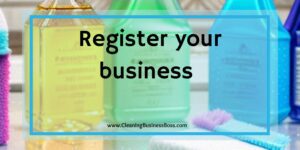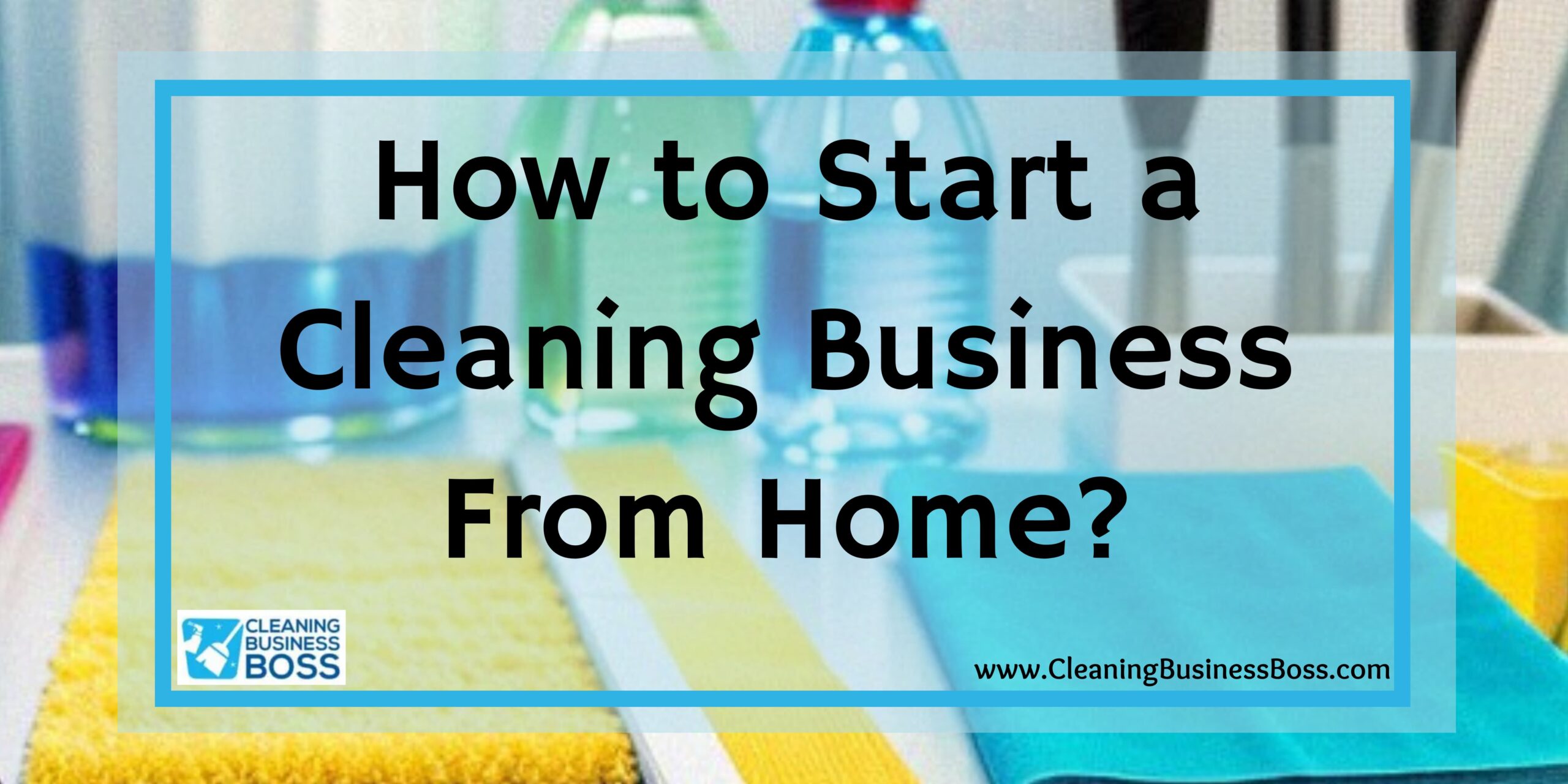If you’ve decided that this is the year where you’ll finally start your own cleaning business, first of all, congrats; opening a cleaning business can be a very cheap way to start generating extra revenue.
How to start your cleaning business
- Finance your cleaning business
- Pick your market/ location
- Register your business
- Invest in some advertisements
- Start cleaning!
In fact, the only things you really need to pay for are a few cleaning products, some initial advertising, and a couple of permits (more on these later).
But if you’re not sure how to start, don’t worry, because in this article we’re going to cover exactly how to start your own cleaning business from home and then briefly touch on some of the pros and cons of doing so.
Fund your cleaning business
Financing a new business venture is arguably one of the most stressful tasks of starting a new business, as it requires many budding entrepreneurs to borrow a substantial amount of money from friends and family or through a business loan. For example, if you wanted to start your own brick and mortar coffee shop you can expect to spend upwards of $250,000 as an initial investment.
However, almost anyone can open up their own cleaning business for a fraction of the cost and from the comfort of their own homes. This is because funding your own cleaning business comprises of buying some initial cleaning equipment and registering your business — that’s it. You don’t even need to hire employees when you first start, and any initial advertising can be fairly cheap or even completely free.
In fact, to start your own cleaning business you need no more than 1,000 to 2,000 dollars.
Here are some things you can expect to buy when you first open your cleaning business:
- Vacuum Cleaner
- Mop and bucket
- Dusters
- Broom/ dustpan
- Glass cleaning cloth
- Rubber gloves
- Disinfectant wipes
Keep in mind that these are just some of the equipment you’ll need to successfully open your own cleaning business from home.
There are some cleaning service companies that expect employers to provide equipment/supplies, and that may be the best option for you if you don’t have a car or another way to easily transport your supplies. However, if you do have a mode of transportation then we strongly recommend that you purchase your own cleaning supplies as it is far more professional.
There are some other benefits to buying your own cleaning equipment that we discuss in our Frequently Asked Questions section.
Check out this article to know some descriptions about a cleaning business.
Pick your market and location

Market
There are two main types of markets that you can go after when you enter the cleaning industry: residential cleaning and commercial cleaning. Residential cleaning focuses on the cleaning of homes/apartments and it’s what most people think of when they think of a cleaning business. Commercial cleaning focuses on the cleaning of offices, buildings, and retail stores.
Which one should you go for?
When first starting out residential cleaning, it is much easier than commercial cleaning in all aspects. Commercial cleaning requires a much bigger investment to get the business rolling (you’re competing with multi-billion-dollar companies who have vast amounts of resources).
Commercial cleaning also requires you to get state-of-the-art equipment, hire a large number of employees, and spend a great deal of money on advertising. As a residential cleaner you primarily clean homes and apartments, you don’t need to hire many people (if any at all), you can do most of your advertising by word of mouth, and you can use most of the cleaning supplies you already have at your house.
Location
Now that you’ve picked your market, you need to pick a location at which you do business. Picking a location to do business for your cleaning company is a little bit different than picking a location to open a coffee shop at. For a cleaning company, it’s more about establishing a range or area of where you want to do business.
This can be better explained through an example. Let’s say, for instance, you’ve just opened up a residential cleaning company. Great. Now you need to establish an area. Maybe you decide that you’ll clean all the homes in a certain neighborhood or that you’ll clean all the apartments in a certain complex.
Maybe you’re more ambitious and you want to clean any residential area within your town or city, and that’s fantastic. What’s not good is picking a range that’s too big — like an entire state — because if you live in Texas, that’s impossible to do. When your starting out, you can’t really be picky; in order to build a client base, you just take what you can get. However, it’s important that you establish the range of where you’re going to do business so that you can feasibly get to every location within that area.
Register your business

The legal necessities surrounding domestic services aren’t always crystal clear, and it’s even more uncertain with residential cleaning, because most cleaning jobs are paid in cash. The first thing you need to do in order to register your business is to settle on a corporate form. There are three types of corporate forms to choose from:
- Sole Proprietorship
- Partnership
- Limited Liability Company
A sole proprietorship means that you are the sole owner of the business and are responsible for all of the business’s debts. For tax purposes, you will use your Social Security Number and report your business income on your Form 1040.
If you want to start a cleaning business with someone else, then you can think about forming a partnership. A partnership is a business formed by two or more people. However, individual partners are legally liable on the debts incurred by the partnership. The last option is a limited liability company (LLC). An LLC is a type of business structure that combines elements of partnerships and traditional corporations. The main thing you should takeaway from an LLC is that it can protect you from lawsuits.
If someone sues your business, then they can only target your business assets, not your personal assets. In a partnership or sole proprietorship, anyone who sues your business can also come after your personal assets. Choosing between the different forms is a complicated process. You will also need to consider the tax advantages or disadvantages of each. If you need help, be sure to talk to lawyer.
How to run a commercial cleaning business in another state.
Invest in some advertisements

Advertising your cleaning business is a great way to build up a client base — and it doesn’t always have to be expensive!
While you can rely on word of mouth to drive an increase in client base, it’s not necessarily the most effective way to generate more revenue. In fact, investing in an online presence will help your business in the long run.
You create your online presence by creating a business page on Facebook and also linking it to your personal Facebook page to get immediate exposure. You can also pay for ads on Facebook to increase exposure. (For information on the average costs for Facebook ads, click here.)
You can also create a website dedicated to your business. Creating a website is a great idea because you can showcase some of your work and also have a section where customers can leave reviews. Good reviews will drive business. In today’s highly digital world, it’s important that current and potential clients can find you online.
Start Cleaning!
After you’ve financed your business, picked your area of work, and registered your business, you’re ready to start cleaning. It’s important to note that an online presence is not a prerequisite to start and can actually be done after you’ve started your first gig. You can build up your client base by offering your services to close friends and family first and then asking them to do some free advertising for you.
Remember, though, that owning and operating a cleaning business is mentally and physically demanding work. When you first start out it might just be you and a friend cleaning houses or apartments together. Before you dive headfirst into your own cleaning business, try to spend a few days “on the job” to make sure that this is something that you really want to do.
Frequently Asked Questions
What are the other benefits of buying your own cleaning equipment?
Like we mentioned in “Finance your cleaning business,” buying your own cleaning equipment will instantly make you seem more professional and reliable. But aside from that, it will also allow you to charge a higher rate because clients are paying you for both the convenience of sourcing the right cleaning products and cleaning their homes. Further, you can also clean faster when you use cleaning products and equipment that you know how to handle.
What if I don’t want to do all of my advertising online?
That’s perfectly okay. Like we said, word-of-mouth advertising is a great way to build up your client base and it’s completely free. You could also look to invest in a stack of personalized business cards, in case you run into some offline networking opportunities.
Sources
Wood, Meredith. “How to Start a Cleaning Business in 7 Steps.” Fundera, www.fundera.com/blog/how-to-start-a-cleaning-business.
“The Essential Cleaning Business Supplies Checklist.” Jobber Academy, 4 June 2020, academy.getjobber.com/resources/articles/cleaning-business-supplies-list/
To learn more on how to start your own cleaning business, check out my startup documents here.
Please note that the contents of this blog are for informational and entertainment purposes only and should not be construed as legal advice. Any action taken based on the information provided in this blog is solely at your own risk. Additionally, all images used in this blog are generated under the CC0 license of Creative Commons, which means they are free to use for any purpose without attribution.

About the author. Entrepreneur and Cleaning Business Fan.
Hi! I am Shawn and I am a happy individual who happens to be an entrepreneur. I have owned several types of businesses in my life from a coffee shop to an import and export business to an online review business plus a few more and now I create online cleaning business resources for those interested in starting new ventures. It’s demanding work but I love it. I do it for those passionate about their business and their goals. That’s why when I meet a cleaning business owner, I see myself. I know how hard the struggle is to retain clients, find good employees and keep the business growing all while trying to stay competitive.
That’s why I created Cleaning Business Boss: I want to help cleaning business owners like you build a thriving business that brings you endless joy and supports your ideal lifestyle.


1 thought on “How to Start a Cleaning Business From Home?”
Comments are closed.